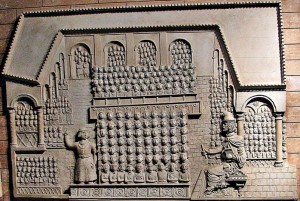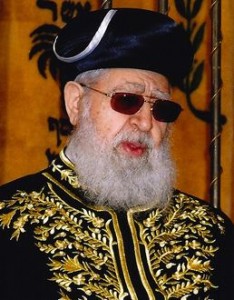In Memory of a Great Israeli Diplomat
Yehuda Haffner (1928-2015) was born in Manchester, England to an Orthodox Jewish family. From a young age he was involved with Bnei Akiva, a religious-Zionist organization founded a year after Haffner was born (and now the world’s largest religious-Zionist youth movement). He would later serve as its national director, too. After high school, Haffner moved to Israel, taking on the more Hebrew-sounding last name of Avner. Shortly after that, he fought in Israel’s War of Independence with the elite Palmach forces, defending Jerusalem during its difficult siege. Following the war, he helped to found the religious Kibbutz Lavi. In 1958, Avner joined the Israeli Foreign Service and worked for the Prime Minister’s office. For the next 25 years, he served as a speechwriter, secretary, and advisor to six prime ministers and presidents. He also became an important statesman and politician of his own, as an Israeli diplomat in Washington, as ambassador to the UK, Ireland, and Australia, and for his involvement in key operations such as Entebbe (to free Jewish hostages from a hijacked airplane in Uganda), and Operation Opera (to destroy Iraq’s nuclear capabilities). Interestingly, he also served as Israel’s unofficial liaison to the Lubavitcher Rebbe. Throughout his career, he never compromised his faith, proudly wearing his kippah wherever he went, and making sure to have kosher meals arranged at state dinners. In 2010, Avner published a highly-acclaimed memoir which has since been adapted into a documentary (voiced by Sandra Bullock, Michael Douglas, Cristoph Waltz, and Leonard Nimoy). He has been described as “one of the senior members of Israeli diplomacy”, “living Israel’s history”, and “Begin’s Shakespeare” for his beautiful speeches. Sadly, Avner passed away yesterday from complications due to cancer.
Words of the Week
From Yehuda Avner’s “Ten Commandments”:
1. When an enemy of our people says he seeks to destroy us, believe him.
2. Stand tall in the knowledge that every tyrant in history who has ever sought our destruction has himself been destroyed.
6. Whenever a threat against a fellow Jew looms, do all in your power to come to his aid, whatever the sacrifice.
7. Never pause to wonder what others will think or say.
8. Be forever loyal to the historic truth that Israel is the nation state of the Jewish people and Jerusalem its eternal capital.
10. Build Jewish homes not by the accident of birth, but by the conviction of our eternal Torah.



